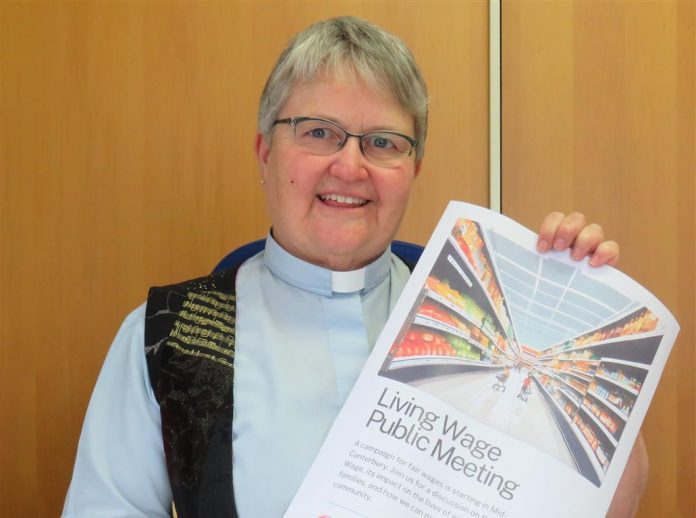
Focus initially on district council
A living wage movement has been established in Mid Canterbury following a public meeting last week.
New organisation Living Wage Mid Canterbury, aligned with nonprofit campaign organisation Living Wage Aotearoa New Zealand, has set its first task – to seek information about pay levels in publicly funded organisations in the district, such as the district council.
Meeting host Rev Indrea Alexander said it would be good for ratepayers to know those working for them were receiving enough money to live in dignity and participate in community life.
“The minimum wage of $22.70 an hour does not provide adequate opportunities, compared with the current living wage rate of $26 an hour,” Alexander said.
“The living wage is about more than just survival,’’ she said.
‘‘It includes small but important things like workers being able to afford for their children to be involved in sports or the arts, and hopefully the workers will also be able to enjoy being part of community life.”
Six people, including Living Wage Canterbury organiser Nathaniel Herz-Edinger and union representatives, attended the public meeting.
Herz-Edinger said the small group was enough to get the movement going, with living wage campaigns usually led by teams comprising members of secular and faith-based community groups, and unions.
Meanwhile, district council group manager people and facilities Sarah Mosley said on Tuesday the district council was yet to hear from the new organisation.
‘‘But we are happy to discuss and understand more about its work in this district,’’ Mosley said.
At this stage the district council had no plans to follow the lead of Environment Canterbury, which became New Zealand’s first regional council to become an accredited living wage employer in April.
‘‘As this would have budget implications, it would need to be a decision for council.’’
Currently more than 96 per cent of permanent full-time staff and more than 60 per cent of permanent part-time staff at the organisations earned higher than the living wage.



